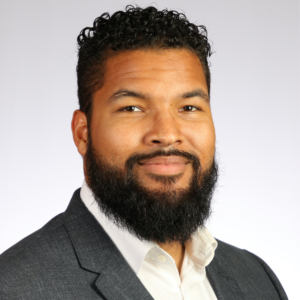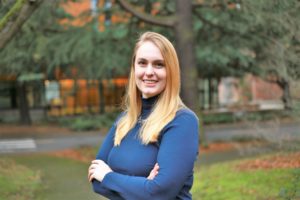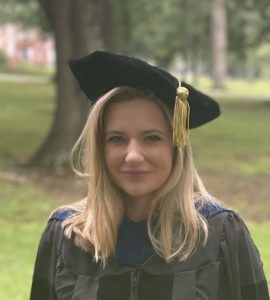In April 2022, the Society for Biomaterials held their annual meeting in Baltimore, USA. Journal of Materials Chemistry B and Materials Advances sponsored this event along with companion journal Biomaterials Science.
We would like to congratulate the winners of the SFB Postdoctoral Research Award. Check out the award winners and learn about their research in our interview below.
Mykel Green: 1st Prize
1. What inspired you to go into your area of specific research?
While studying biology at Morehouse College, I fell in love with sickle cell disease. It’s a simple mutation, but the consequences are physiologically disastrous. Blood is nearly ubiquitous; therefore, all biomedical researchers can study it, but it is significantly under-resourced and under-studied relative to other conditions. I want to correct this injustice for patients with sickle cell and other health disparities.
2. What is one of the most rewarding things about your area of research?
I love creating polymers! Something about synthesis excites me, especially trying to develop a new protocol. It is akin to cooking from scratch; you always take great pride in the final product (except when results are unfavorable).
3. What are your next steps for your research/career?
In the immediate future, I hope to create a definitive body of research supporting my hydrogel carrier as a functional bone marrow transplantation modality in a non-diseased animal model. Eventually, I will begin testing in a sickle cell model and tailor the hydrogel to address its many challenges. I expect these studies to be a significant part of my early-stage investigator work, among many other related projects.
Teresa Rapp: 2nd Prize
1. What inspired you to go into your area of specific research?
A chemist by training, I was first inspired by the incredible potential to create new functional biomaterials by innovation in the chemistry space. This field has allowed me to pursue both my interest in basic science as I discover new molecules, and demonstrate their real world feasibility in a product that could transform the work of so many research groups across the world. I hope to continue to work at the forefront of biomaterial development throughout my academic career.
2. What is one of the most rewarding things about your area of research?
The depth of knowledge I get to pursue as I work in this area. I love my work in synthetic chemistry and materials development, and this area provides many opportunities for me to collaborate with bioengineers, biologists, clinicians, and many others; opportunities that allow me to learn about a vast range of natural sciences.
3. What are your next steps for your research/career?
I will be entering the tenure track faculty job market this year, looking to start my own research lab to explore the potential of these new photochemistries in the next generation of biomaterials.
Kimberly Nellenbach: 3rd Prize
1. What inspired you to go into your area of specific research?
Tissue engineering has been a long interest of mine because of family and friends who experienced tissue and organ damage due to injuries or chronic inflammatory illnesses. I wanted to play an integral role in helping restore, maintain, or improve this damage. I narrowed my focus of research on wound healing/hemostatic materials when I became part of the Advanced Wound Healing Lab at NCSU and wanted to contribute to moving this research forward.
2. What is one of the most rewarding things about your area of research?
One of the most rewarding aspects of developing hemostatic materials is that our lab is working towards filling a critical need, especially given the current nationwide blood shortage.
3. What are your next steps for your research/career?
The next steps in my research career are to continue to explore ways to enhance wound healing and treat bleeding by investigating the efficacy of our lab’s platelet-like technology in different models of coagulopathies and impaired wound healing
We would also like to congratulate the following finalists for the SFB Postdoctoral Research Award:
Jason Guo
Ana Mora Boza
Jingjing Gao
Please join us in congratulating all the winners and the finalists of the SFB Postdoctoral Research Award 2022!













